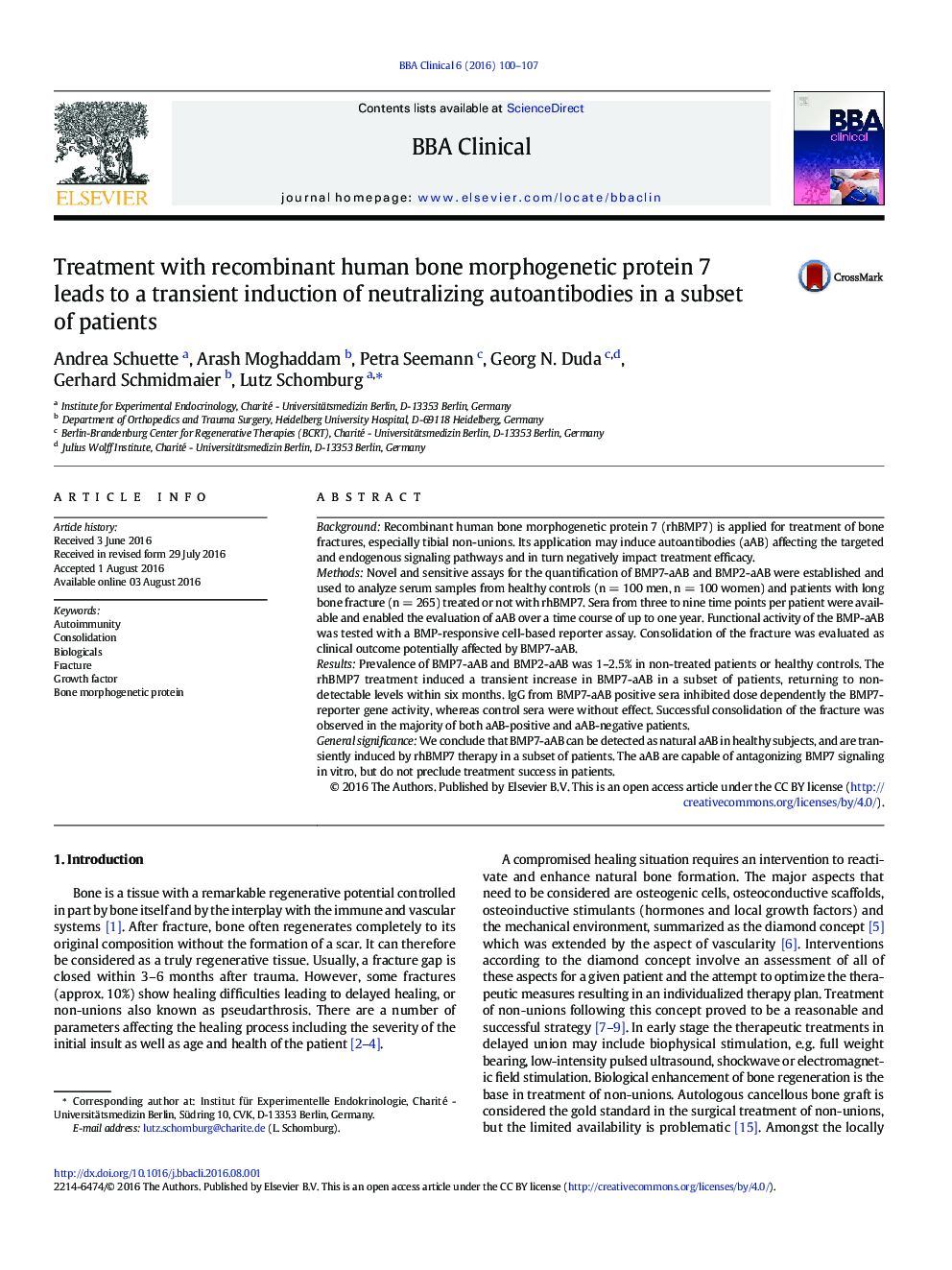| Article ID | Journal | Published Year | Pages | File Type |
|---|---|---|---|---|
| 2773055 | BBA Clinical | 2016 | 8 Pages |
•There are patients with natural autoantibodies recognizing BMP7.•In some patients, rhBMP7-therapy induces BMP7 autoantibodies.•BMP7 autoantibodies elicit neutralizing effects on BMP signaling.•Therapy-induced BMP7 autoantibodies disappear over time.•BMP7 autoantibodies seem not to affect therapy success.
BackgroundRecombinant human bone morphogenetic protein 7 (rhBMP7) is applied for treatment of bone fractures, especially tibial non-unions. Its application may induce autoantibodies (aAB) affecting the targeted and endogenous signaling pathways and in turn negatively impact treatment efficacy.MethodsNovel and sensitive assays for the quantification of BMP7-aAB and BMP2-aAB were established and used to analyze serum samples from healthy controls (n = 100 men, n = 100 women) and patients with long bone fracture (n = 265) treated or not with rhBMP7. Sera from three to nine time points per patient were available and enabled the evaluation of aAB over a time course of up to one year. Functional activity of the BMP-aAB was tested with a BMP-responsive cell-based reporter assay. Consolidation of the fracture was evaluated as clinical outcome potentially affected by BMP7-aAB.ResultsPrevalence of BMP7-aAB and BMP2-aAB was 1–2.5% in non-treated patients or healthy controls. The rhBMP7 treatment induced a transient increase in BMP7-aAB in a subset of patients, returning to non-detectable levels within six months. IgG from BMP7-aAB positive sera inhibited dose dependently the BMP7-reporter gene activity, whereas control sera were without effect. Successful consolidation of the fracture was observed in the majority of both aAB-positive and aAB-negative patients.General significanceWe conclude that BMP7-aAB can be detected as natural aAB in healthy subjects, and are transiently induced by rhBMP7 therapy in a subset of patients. The aAB are capable of antagonizing BMP7 signaling in vitro, but do not preclude treatment success in patients.
Graphical abstractStatement of significance: The treatment of bone fractures with recombinant human BMP7 (rhBMP7) induces a transient peak of autoantibodies to BMP7. These antibodies are active as antagonists in vitro, but do not preclude treatment success. These findings are of relevance to rhBMP7-based treatments and the interpretation of health risks by drug induced autoantibodies.Figure optionsDownload full-size imageDownload as PowerPoint slide
